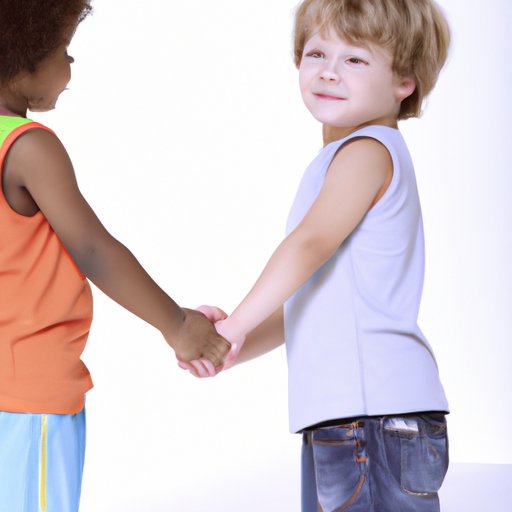Introduction
Friendships play an important role in a child’s development. Having strong friendships can help children learn valuable social skills, provide emotional support, and build self-esteem. As a parent or caregiver, it’s important to help children understand what it means to be a good friend and how to foster strong relationships with peers.
But what does it mean to be a good friend? According to the Merriam-Webster Dictionary, a friend is “a person who you like and enjoy being with.” A good friend is someone who is supportive, kind, and honest. They are also loyal and trustworthy, and they have your best interests at heart.
Listening to Each Other
One of the most important aspects of friendship is communication. It’s important to listen to each other and really hear what the other person is saying. This means not only hearing the words but understanding their meaning and intent. When friends listen closely to each other, it builds trust and creates a deeper connection.
Encourage your child to have meaningful conversations with their friends and to really listen to them. This includes making eye contact, asking questions, and providing feedback. It’s also important to take some time to just hang out and enjoy each other’s company—this is called quality time. Quality time doesn’t have to involve doing something special; it can simply be chatting, playing a game, or taking a walk together.
Respect Each Other’s Feelings
It’s important to show respect to each other’s feelings. Encourage your child to think about how their words and actions might affect their friends. For example, if their friend is feeling upset, they should try to be understanding and offer support. They should also avoid teasing or making jokes that could hurt their friend’s feelings.
Teach your child about empathy, which is the ability to put yourself in someone else’s shoes and understand how they feel. When your child has empathy for their friends, it helps them form strong connections and resolve conflicts peacefully.
Making Time for Each Other
Good friendships require effort and commitment. Encourage your child to make time for their friends and to stick to plans. This means scheduling regular activities, such as playdates or movie nights, and actually showing up. It also means making time for quality time together, even if it’s just for a few minutes.
If your child has difficulty maintaining friendships, encourage them to reach out to their friends and let them know when they’re available. You can also help them come up with ideas for things to do together.
Being Honest
Honesty is another essential part of friendship. Friends should always tell each other the truth, even if it’s difficult. Encourage your child to be honest with their friends, but also to be respectful and understanding.
It’s also important to be supportive of each other. Friends should be there for each other during tough times and celebrate each other’s successes. Teach your child to be a good friend by offering encouragement and praise.
Having Fun
Friends should also have fun together! Laughter is an important part of any relationship, so encourage your child to share funny stories and jokes with their friends. Playing games, watching movies, or simply hanging out can help friends bond and create lasting memories.
Encourage your child to find activities that they both enjoy and to make the most of their time together. The more fun they have with their friends, the stronger their friendships will become.
Conclusion
Friendships are an important part of a child’s development. To be a good friend, kids need to be able to listen to each other, respect each other’s feelings, be honest, and have fun together. By teaching your child these skills, you can help them foster strong, healthy relationships with their peers.
So encourage your child to practice good friendship habits and remind them that having strong friendships is an important part of life. With your help, your child can learn how to be a good friend and develop meaningful relationships that will last a lifetime.
(Note: Is this article not meeting your expectations? Do you have knowledge or insights to share? Unlock new opportunities and expand your reach by joining our authors team. Click Registration to join us and share your expertise with our readers.)
